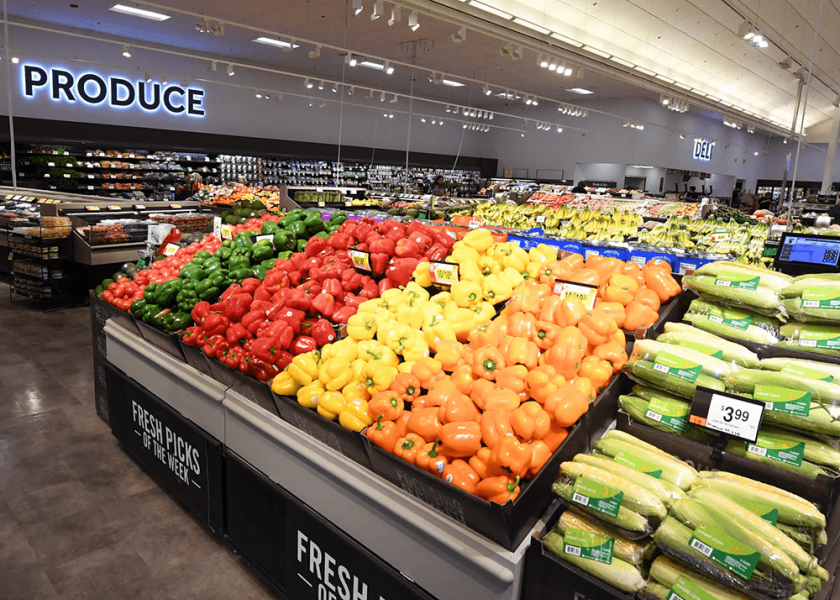It’s Time to Think Holistically About Food Safety

The way the world thinks about food safety is changing, and food companies must evolve in response.
Consumers want to know what’s in their food, how it’s made, how it affects their long-term health, where it comes from, and how its production impacts people, communities, and the environment. This evolved view of food safety – a concept intertwined with elements of sustainability and social responsibility – is putting unprecedented pressure on food manufacturers to manage every link in their supply chains. Keeping close tabs on every step of the journey is easier said than done.
To comply with increasingly stringent regulations, satisfy a watchful consumer base, and meet their own aspirations, companies must approach food safety through a more holistic lens with a more sophisticated approach to the testing, inspection, and certification process.
An intricate food ecosystem
Society has opened its eyes to the realities of modern food production and its rippling effects across health and wellness, economics, human rights, and environmental protection. Each of these imperatives, as it turns out, is closely linked to our need for food safety.
For example, substandard working conditions and inhumane practices can lead to sanitation issues, the spread of pathogens, poor worker performance and on-the-job injuries, any of which may also have a negative impact on food safety. On the environmental side, factors that are generally bad for the earth – pesticides, soil degradation and erosion, heavy industry adjacent to farms – may also result in food contamination.
In short, it’s all connected, and food companies large and small have a growing mandate to understand the whole story. Major governments, of course, have well-established food safety regulations that continue to grow, but compliance by itself is no longer enough. Food safety mandates aren’t nearly as comprehensive in developing countries from which countless major brands source their ingredients. Nor do existing laws fully account for the interconnected nature of food production, sustainability, and human welfare.
Beyond meeting the letter of the law, food brands need assurances that workers throughout their supply chain are being treated ethically and that their production methods make responsible use of natural resources. For companies to improve their performance in these areas – and be able to prove it – they’ll need to do some fresh thinking.
Bringing it all together
Approaching food safety as a holistic endeavor starts at the leadership level. Conceptually, it involves defining and developing a food safety culture that recognizes the company’s role in the larger order of things. In practice, it requires finding ways to root out food safety and ethical issues across the supply chain, from the smallest family farm to the largest manufacturing facility.
The sheer scope of the issue may seem overwhelming, but there’s significant progress to be made by partnering with third-party audit and certification bodies. An experienced certification body can do much more for a food company than check some obligatory boxes. It can help the organization explore and objectively assess the furthest reaches of its operations, uncover potentially hazardous issues, and identify strategies for long-term improvement. This is true when it comes to meeting regulations and achieving standard certifications, but also as it relates to companies reaching their own self-imposed goals for food safety, sustainability, and social responsibility.
Only a high-quality audit process will yield credible results and valuable, actionable insights. For the process to be meaningful, auditors must have the breadth of knowledge and geographic range to work across diverse cultures and regions and be able to skillfully deliver hard truths in order for company leaders to respond and take action.
Ultimately, these initiatives can only succeed if the top management commitment is clear to build support, raise the bar, and drive adoption of new ways of working through the organization.
A worthwhile investment
For now, most of the world still views the integrated approach to food safety and sustainability as progressive and desirable – but not yet mandatory. That will likely change in the coming years as issues of climate change, resource shortages, and social injustice occupy an ever-larger space in the public consciousness. Supply chain transparency will soon be table stakes for all food companies, demanded by customers and consumers if not legislated by governments.
Today, organizations have an opportunity to get ahead of the pack and approach their supply chain procurement strategy with both food safety and sustainability as equally important and interconnected. By reaching beyond the minimum requirements and holding themselves and their suppliers to higher standards, they can set the example that food safety, environmental stewardship, and social responsibility aren’t antithetical to profits. In fact, they go hand in hand.
Carey Allen is vice president and managing director, food and agriculture, for SCS Global Services.







